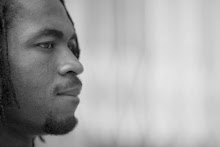Saturday, November 8, 2008
The Poverty of Culture: Fiction of Customs
The Fiction of Customs (aka The Poverty of Culture) is a venture into the farther reaches of, the most abstract and experimental forms of, what I, King Rucks, call, AuthentiCinemArt; more specifically the AuthentiCinemArt (or style, perspective) of King Rucks. Fiction is experimentation into the de(and re)construction of both the cultural and cinematic codes of contemporary society. The film is a denouncement of some of the major illusive, deceptive, and repressive components of historical human society and specifically those of dominating 20th Century societies, and an avant-garde attempt at a cinematic art piece. I aim to make a film that is visually, psychologically, and emotionally unsettling, agitating the viewer to consciously transform its repressed psyche and subjectivity. Through an ordered aesthetic transformation of found footage material, I look to affirm the possibilities of an unrepressed cinematic form. Indirectly then, The Fiction of Customs is a call for new cultures and for new cinemas.
Imagine Brakhage’s Prelude to Dog Star Man meeting Guy Debord’s Society of the Spectacle. Fiction will be at this nodal point. The film is a poetic usage of the authority of reality (Deren’s conception of cinematography), the meanings made from montage, and the hypnotic visuality of cinematic perspectives on locales of time-space (Vertov and his perfect camera eye as truth). Fiction shall be an exploration into the surrealistic, lyrical, architectonic, historical materialist, detourning , poetic, and visual film. The film will be primarily silent, highlighting the visual element of cinema. We will be using found footage and documentary footage for the film, in a voiceless use of detournement, highlighting the importance of the reality itself; both the reality of the unstaged reality of the historical world as documented by cinematographic devices, as well as the reality of the staged reality of historical cinema- the Spectacle and its call to consumerism. Through montage alone, we will aim to criticize specific cultural codes, each act having as its theme a particular code. These include commodity culture and the Spectacle, religion, upper-class veneration, and xenophobia.
Montage will also help us achieve the surreality of cinema. Through juxtaposing and overlaying images, meaning will poetically arise in the relations of difference between image-concepts. This film will aim to act as a springboard for the repressed psyche to make conscious its discontent. The film attempts to merge reality with dream-state in an attempt to include the imagination of the viewer into the experientiality of the film; each individual is to create different associations to their own personal psychical life through the apprehension of the surreality of Fiction. Fiction attempts to both catalyze the thought of the viewer as well as act as the actual functioning of thought; as the mind works through images and associations, as will Fiction, and these two will combine in a dialectical dance whose only aims are to agitate the repressive apparatus of the psyche as well as give sublimated satisfaction to this psyche through aesthetic beauty (which provides invisible feelings of hope, as opposed to the nihilist despair such a deconstructive endeavor could catalyze within an individual).
The Fiction of Customs, then, is an attempt at an attack on the apparent validity of existing cultural codes (customs of society and cinema). It is a cinema of poetry, of intervals, of surreality, of Relationality, of detournement, and of the avant-garde raison d’etre. We will be trying to create a visual poem that can communicate the audience’s (and the historical audience’s) discontent with the arbitrariness and unfreedom of its psycho-socio-political codes. The Fiction of Customs aims at being a part of the seventh art; the poetry of the visual ideo-experience that is AuthentiCinemArt.
